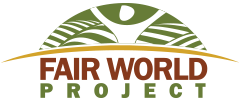Bangkok Post August 15, 2011 |
Shrimp farmers in Prachuap Khiri Khan province hope that their hard work over the past four years will help them win credentials from the Fairtrade Labelling Organisations International some time next year.

Mr Decha uses gutweed, which absorbs waste and helps improve water quality to prevent disease and promote shrimp growth.
The Fairtrade label, issued by a global organisation that campaigns for a better deal for farmers and workers in developing countries, would raise the profile of the group, formed to raise shrimp in an environmentally responsible way.
“Bio-shrimp farming applies an environmentally friendly raising model in which natural substances are used to prevent diseases and promote growth,” said Decha Banluedet, chairman of the Samroi Yod-Pran Buri Shrimp Raisers Cooperative.
“The process is not only a way to make clean produce but effective social responsibility since no polluted water is drained out.”
The raising system as well as fair practices among members are crucial conditions for FLO certification.
The cooperative, formed in 2008 to pioneer bio-shrimp farming, has received technical assistance from various agencies including the Fisheries Department. It operates by four main principles: sustainable growth, harmony with nature, environmental friendliness and community responsibility.

Beneficial bacteria _ bacillus and rhodopseudomonas _ are used when preparing ponds and water. Bio-fertilisers are later added to promote natural food sources such as plankton.
To reduce shrimp stress, farmers are advised to harvest fewer fry in a pond _ a maximum of 30 black tiger prawn fry per square metre and between 30-75 for vannamei.
Shrimp cultivation has long been criticised for causing water pollution. Therefore, the use of gutweed (enteromorpha intestinalis) to absorb waste and help improve water quality is advised.
“However, farmers have to check water quality regularly and draining dirty water is prohibited,” he said.
Pre-and pro-biotic beneficial bacteria are also added in feedmeal for disease prevention and growth promotion.
Using these methods, farmers need to be more attentive. But Mr Decha said they would get handsome returns _ high survival rates of up to 80% and larger shrimp of around 50 head a kilogramme _ for a shorter raising period.
It takes only 90 to 100 days to get shrimp of that size, compared with 110 days for conventional farms. Bio-shrimp also sell for 10-15 baht a kilogramme higher than other shrimp.
A member generally produces three tonnes of shrimp worth 465,000 baht, based on a price of 155 baht/kg. After expenses including 120,000 to 130,000 baht for feed and 50,000 baht for oil and utilities, farmers still earn a high income, he said.
The success of the operation has helped the cooperative expand to 200 farmers from 52 when it started. It now produces about 100 tonnes of bio-shrimp a year, sold to local coldstorage companies for distribution to the Marks & Spencer in the UK.
The volume is minuscule compared to the 400,000 tonnes of shrimp the country exports each year but Mr Decha expects the Fairtrade label will encourage more farmers to turn to bio-farming.
The National Bureau of Agricultural Commodity and Food Standards (ACFS) is in the process of setting criteria for certifying bio-shrimp farms. The draft, which covers farm management, water, and farming methods, will become a national standard soon.
The rules have been tested at farms in Trang, Songkhla, and by the Samroi Yod-Pran Buri Cooperatives. ACFS certification will help these producers tap into the high-end retail segment as well as health-conscious consumers.

